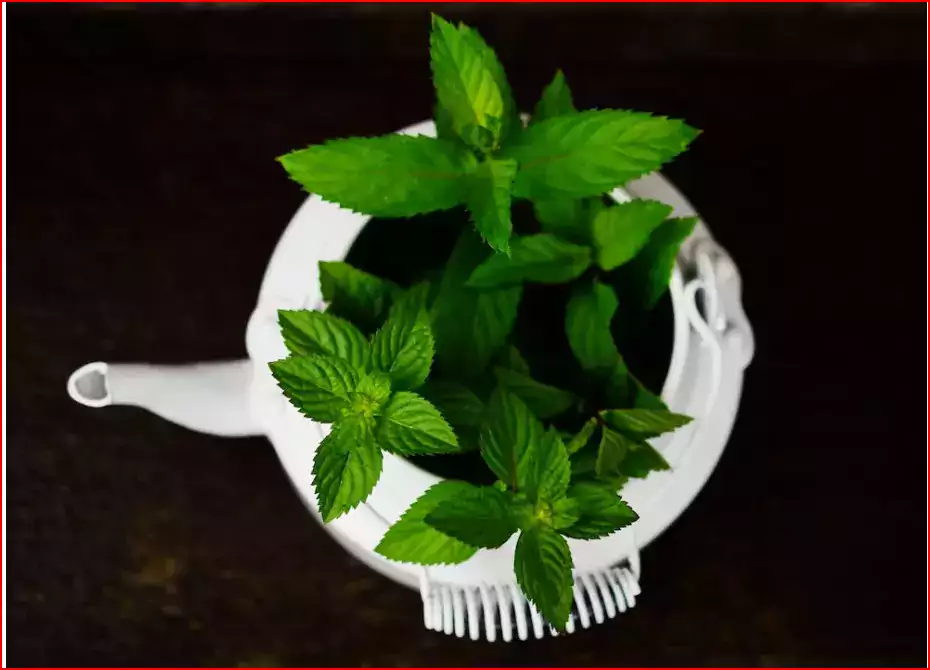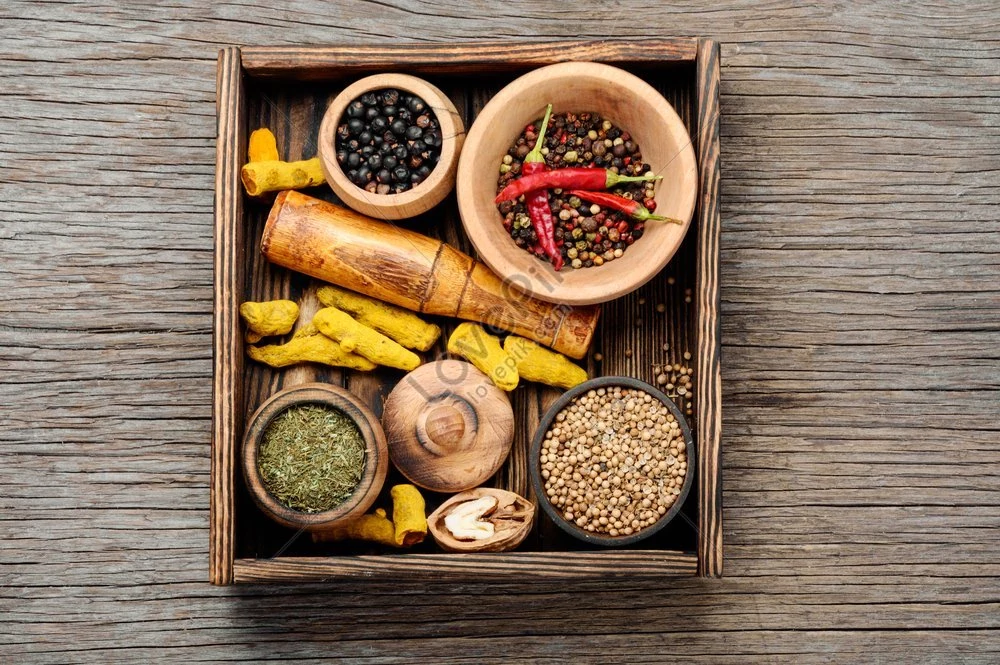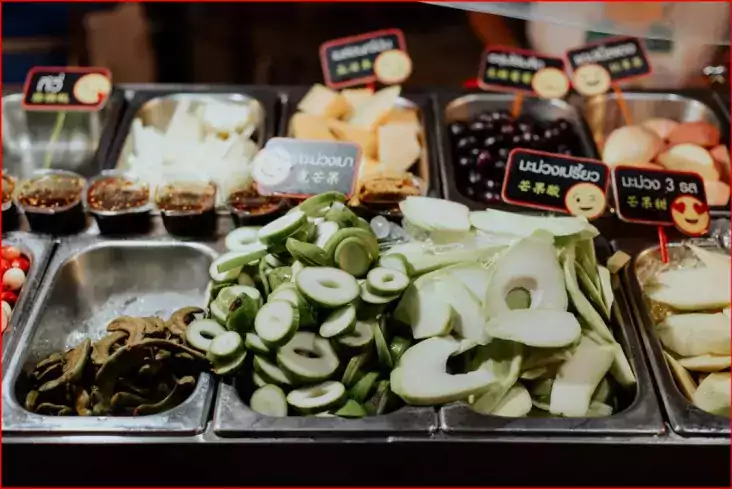
We all have our super mom or granny whenever they cook, using an assortment of spices and herbs which they completely wing it with, yet the food always turns out delicious. A few people have it down pat when it comes to seasoning, but the rest of us tend to be a little more methodical, and that means learning the fundamentals.
Our beginner's guide to spices and herbs will give you an easy division of the cooking elements that are crucial to the success of a meal. If you've desired to be a culinary whiz but didn't know cardamom seeds from cumin seeds or are searching for ways to dress up your weeknight dinner staples, this book is for you to succeed.
Use dried herbs if you're preparing a sauce, soup, or other dish that will simmer for an extended period on the stove. Some herbs, like rosemary, oregano, bay leaves, and the herb marjoram, preserve their flavor quite well once dried as well as are wonderful in cooking. Still, their potency decreases with time (they typically keep for a year).
Herbs, whether dried or fresh, can enhance the taste, heat, as well as the color of your dishes, yet there are additionally a few differences between the two that you should be aware of. For example, when you just have dried herbs on hand but the recipe asks for fresh ones, you can get away with using somewhat less of them to have the same level of flavor because dried herbs are typically far stronger than those that are fresh. A heaping teaspoon of dried herbs for every spoonful of fresh herbs is the suggested ratio, although if you're still not sure, just taste-check when you go.
In addition to their undeniable visual appeal, fresh herbs offer a scent that is hard to top when used in the kitchen. Although fresh herbs may indeed be pricey at the store, it might be worth it to invest in certain plants to keep them available at home. Certain young herbs, especially basil, will turn brown in your kitchen within a few days if you utilize a herb keeper. On the other hand, rosemary is quite resilient and can grow in the backyard even when it's freezing outside. Determine which one will get the most use based on your needs and the amount of room you have.
Some individuals think that dried herbs are never better than fresh ones, especially leafy ones like chives, tarragon, as well as parsley because their flavor is lost when dried. Although there are exceptions, this usually holds when working with raw ingredients like salads with dressings.
We suggest beginning with some adaptable basics if you're new to herbs and spices. No matter what you prefer to cook, such spices and herbs will always be useful.
The spicy, piney, and incredibly comforting flavor of sage—either new or dried—is much enjoyed as well as is native in the eastern Indian area. The herb is hence an essential part of the Christmas and thanksgiving feasts.
Basil, like oregano, is a fragrant plant with a lovely flavor that can transform a baked good or pasta sauce into something special. You can use it drying in recipes or use a couple of fresh leaves as a topping. When you're in the mood for something truly determined, whip up a batch of homemade homemade basil pesto.
Adding oregano to your grocery list should be a priority if you enjoy Italian cuisine. Italian cuisine relies heavily on oregano. So, a little warm, lemony herb is to blame if you've ever noticed a desire for real spaghetti or pizzas.
The aromatic, woody herb rosemary leaves have an intense smell and a unique piney flavor; it is native to the Mediterranean but is easy to grow in the backyard. An herb that is often served with roast chicken, lamb, or vegetables, a handful of rosemary leaves is just what the doctor ordered.
Cumin is a member of the Apiaceae group of flowering plants that originates in India, especially in the Middle East. It imparts a nutty, earthy flavour to soups, stews, and especially curries when used either whole or ground up. It has a strong aroma and a sour, loamy flavor with a hint of citrus, yet you can't really overdo it when using this versatile spice; it adds just the right amount of flavor without overwhelming any dish.
Asian, Chinese, as well as Indian cuisines, among others, make heavy use of chilli flakes to give their dishes a fiery kick. Be cautious to use only a small amount of this spice—it will add a burst of flavor to any dish! Be mindful of the heat level of your spicy chili powder (you will find mild to extremely hot varieties in most major supermarkets), and adhere to a dish you know and love because chili tends to overpower other flavors in food.
The inside bark of Cinnamomum trees, once dried, is known as cinnamon. Although it is most often used in North Africa as well as Middle Eastern curries, you could try incorporating it into your baked goods, desserts, or even your breakfast porridge for a comforting and sugary twist.
While you likely already have it on hand, the significance of beginning with the most widely used spice in the world ought to be underestimated. An excellent pepper mill is an essential ingredient for adding flavor to a wide variety of dishes.
Dry bell, tomatoes, luscious, and occasionally hot peppers are ground into a spice known as paprika. So, it can have a sweet, moderate, strong, or extremely spicy flavor. This multi-purpose spice complements both meat and vegetarian dishes with its subtle heat, and it is a common ingredient in Thai, Eastern European, as well as Latin American cuisines.
Looking through your family cookbook or our cooking blog can give you a good idea of what goes well together when you're just starting with spices and herbs. If you don't plan on cooking any of the recipes (though it would be beneficial to try a few!), you'll still learn the essential spices and herbs used in various cuisines.
It takes a lot of experimenting to perfect your flavoring skills, so it's okay to make mistakes. Keep in mind that herbs and spices are an area where there is no set of rigid regulations. You should play around with different ingredients, familiarize yourself with your mortar as well as pestle, and discover your own unique taste.


